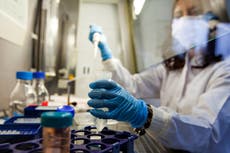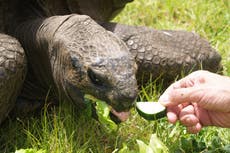Study unlocks secret to long life in queen ants, shedding light on ageing for ‘other species’
Queen ants uniquely exhibit high metabolism for reproduction without undergoing ageing, scientists say


An insulin-suppressing protein could be behind the 500 percent increase in longevity seen in queen ants compared to workers in the colony, according to a new study that scientists say could shed light on the ageing process in other species.
Researchers, including those from the New York University in the US, say queen ants exhibit high metabolism for reproduction without undergoing ageing.
According to the study published in the journal Science on Thursday, these ants generated an anti-insulin protein that blocks only part of the insulin chemical pathway in the body that is responsible for ageing.
Having many offspring is linked to a shorter lifespan in many animals – a trade-off thought to result from how nutritional and metabolic resources are allocated.
Researchers have previously shown that the hormone insulin, which helps convert food into energy, plays a major role in metabolism and ageing.
In most animals, scientists have found the energy-intensive process of producing eggs requires extra food and raises insulin levels, but increased activity of the insulin pathway required for reproduction leads to a shorter lifespan.
On the contrary, scientists have found across several life forms that dietary restriction can prolong life by keeping insulin levels down.
Ants are a notable exception to this widely-observed rule. Queen ants – responsible for the whole colony’s reproduction – live much longer than worker ants while sharing the same genome.
A black garden ant queen, for example, can lay one million eggs and live for 30 years, while her sterile worker sisters only live for a year.
In the new study, researchers assessed Harpegnathos saltator ants native to India – a species in which the queens normally live for five years while workers die in about seven months.
When a queen in a colony of this species dies, female worker ants duel each other with their antennae, vying to become the next queen.
The winners, scientists found, become “pseudoqueens”, while still remaining in the smaller body of a worker.
The behaviour of these new queens changes rapidly, from laying eggs to a substantially-increased life expectancy of around four years.
However, when these pseudoqueen ants are replaced by another worker, they revert to their worker status – they stop laying eggs, and their lifespan shrinks back to seven months.
“Harpegnathos ants provide a unique opportunity to study how ageing and reproduction can be disconnected,” said Claude Desplan, a senior author of the study from New York University.
Scientists found that the ants that switched from worker to pseudoqueen produce more insulin in their brains, leading to the activation of one of the two main branches of the insulin signaling pathway, MAPK, which controls metabolism and egg formation.
The increased insulin production also leads to ovary development for producing eggs.
Insulin-suppressing protein called Imp-L2 is also produced that signals a pathway linked to ageing and life span.
“The two main branches of the insulin signaling pathway appear to differentially regulate fertility and lifespan, with increased signaling in one aiding reproduction in pseudoqueens and decreased signaling in the other consistent with their extended longevity,” said Danny Reinberg, another of the study.
This interplay, scientists say, may contribute to the unusual longevity and many offspring in reproducing ants “and perhaps in other insects”.
“Most manipulations of longevity in animals like mice or flies usually extend their lifespans by 10 to 20 percent. Ants exhibit a remarkable 500 percent increase in longevity, which makes studying them much more powerful,” Dr Desplan said.
“Increased production of a protein that binds insulin-like molecules in the hemolymph might account for the difference that allowed the longer life span of the pseudo-queen,” scientists wrote in the study.
Join our commenting forum
Join thought-provoking conversations, follow other Independent readers and see their replies
Comments



Bookmark popover
Removed from bookmarks